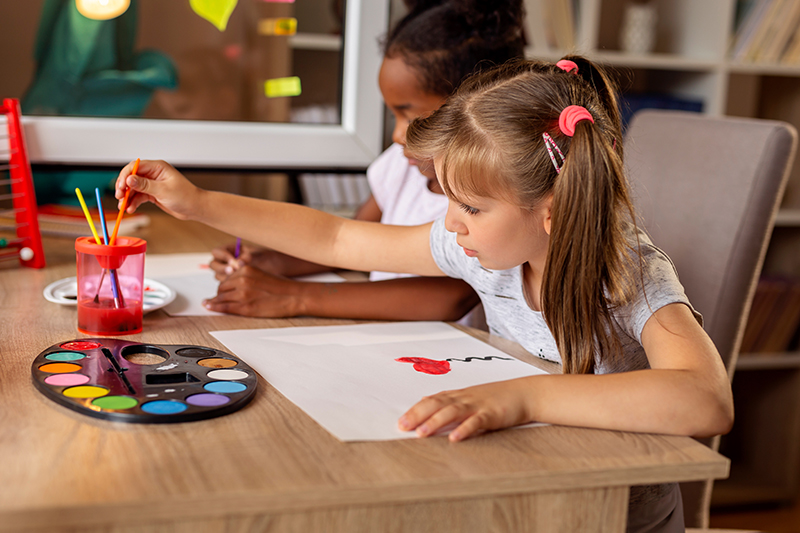
Nurturing Independent Learning through Montessori Classroom Activities
Montessori education, founded by Maria Montessori, emphasizes fostering independent learning and self-directed exploration in children. The classroom environment plays a crucial role in facilitating this approach, providing a space where young minds can thrive. Let’s delve into the various activities that make Montessori classrooms a unique and effective educational setting.
1. Purposeful Environment Design
Montessori classrooms are meticulously designed to encourage independent learning. Various activity stations are strategically arranged to cater to different learning needs. Practical life corners, sensorial areas, and math and language zones are carefully organized to engage children in purposeful activities that stimulate their curiosity.
2. Practical Life Activities
At the core of Montessori education are practical life activities that instill a sense of order, coordination, and concentration in children. These activities, such as pouring, sorting, and buttoning, not only enhance fine motor skills but also promote a sense of responsibility and self-sufficiency.
3. Sensorial Exploration
The sensorial materials in Montessori classrooms provide children with opportunities to explore their senses. Activities involving touch, sight, sound, taste, and smell are incorporated into the curriculum to help children refine their sensory perceptions. This not only aids in cognitive development but also fosters a deep appreciation for the world around them.
4. Math Mastery Through Manipulatives
Montessori math activities often utilize manipulatives, such as the famous Montessori golden beads. These materials enable children to grasp abstract mathematical concepts through hands-on experiences. The progression from concrete to abstract learning ensures a solid foundation in mathematics and problem-solving skills.
5. Language Development
Language development is a key focus in Montessori classrooms. Language activities include storytelling, vocabulary building, and writing exercises. The use of the Moveable Alphabet is a unique Montessori approach that allows children to explore language and construct words before they even start formal writing.
6. Individualized Learning Paths
One of the strengths of Montessori education lies in recognizing and respecting each child’s individual pace of learning. The classroom structure allows children to choose activities based on their interests and developmental readiness. This personalized approach fosters a love for learning and ensures that children progress at their own optimal pace.
7. Linking Theory to Practice: Montessori Classroom Activities
To truly grasp the impact of Montessori classroom activities, one must witness them in action. If you’re curious to explore these transformative methods, consider visiting Montessori Classroom Activities. This immersive experience will provide valuable insights into the enriching environment that nurtures independent learning and fosters a lifelong love for knowledge.
8. Cultivating a Love for Nature
Montessori classrooms often integrate nature-based activities, connecting children with the environment. Gardening, outdoor exploration, and nature walks are incorporated into the curriculum, instilling a sense of respect and appreciation for the natural world.
Conclusion
In conclusion, Montessori classroom activities go beyond traditional teaching methods. By focusing on hands-on experiences, individualized learning, and a purposefully designed environment, Montessori education sets the stage for a child’s lifelong love of learning. Through practical life activities, sensorial exploration, and math and language development, children in Montessori classrooms develop essential skills that extend far beyond the academic realm. The link between theory and practice in Montessori education can be witnessed firsthand by experiencing Montessori Classroom Activities, where the principles of independent learning come to life.




